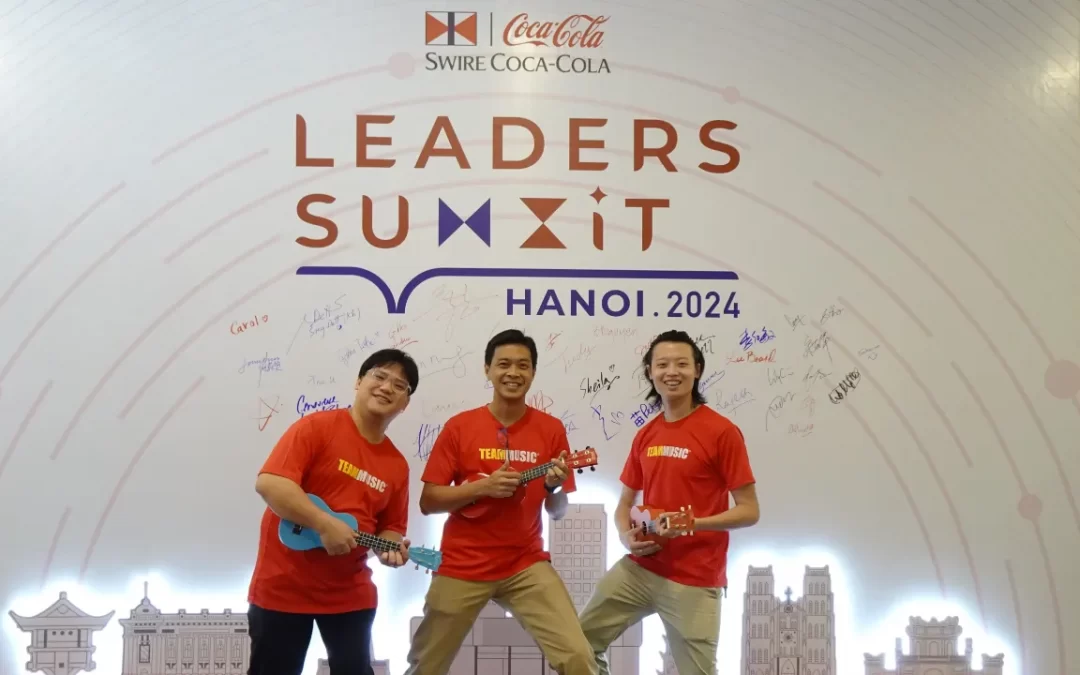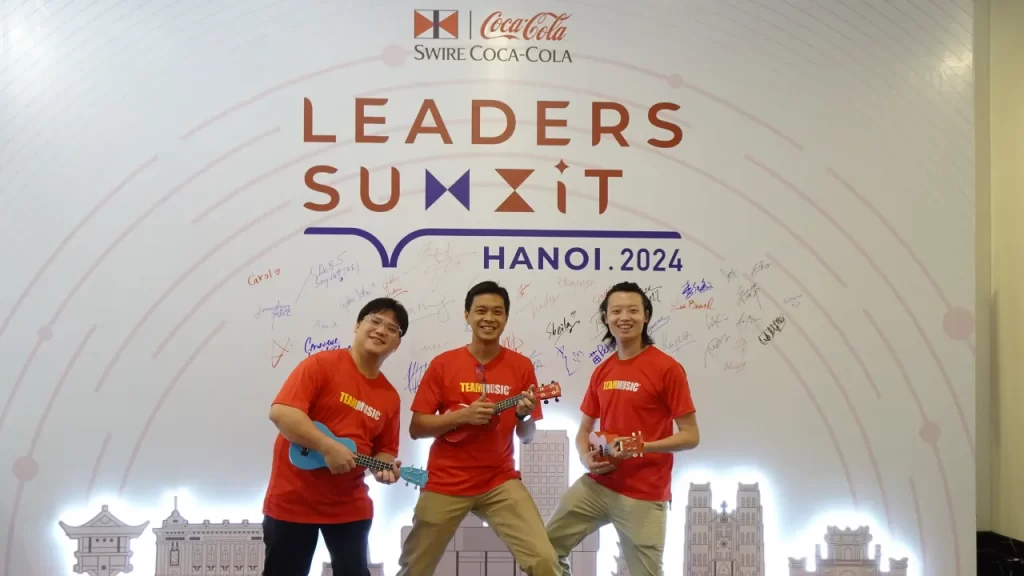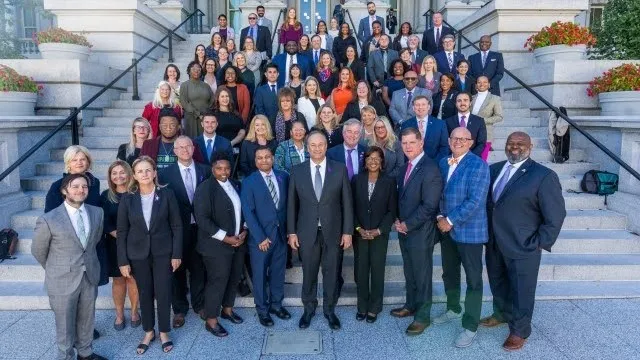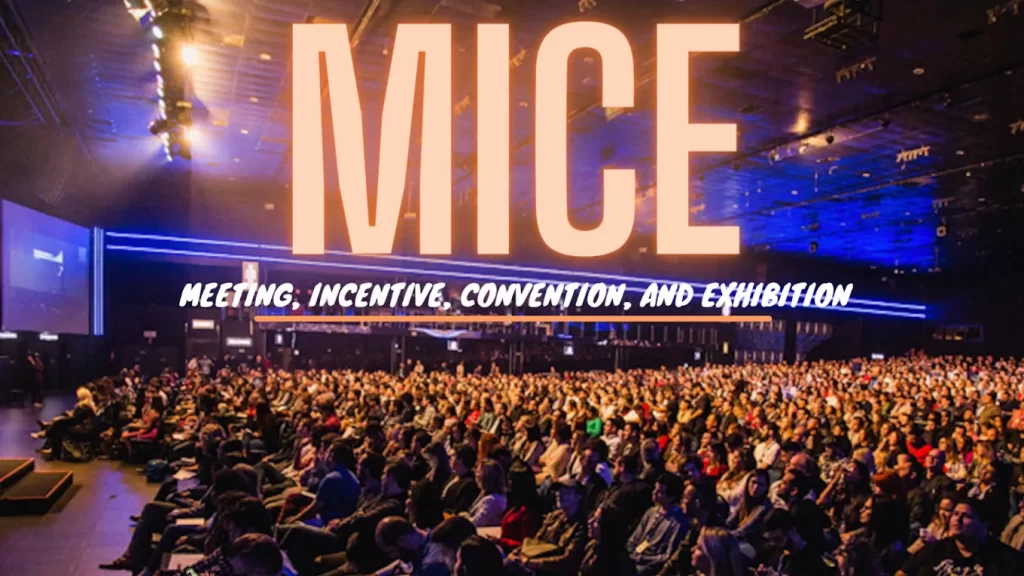

After being in the team-building industry for 10 years, and tirelessly liaising with hundreds of corporate organizers who are working hard for their team engagements, we at Team Music have found the top 4 broad traits of an organizer who is truly successful in organizing their event and whom we love to work with. Today, we want to share these traits with you and describe our ideal organizer.
For this blog, let’s have fun and call our ideal organizer Isabella. She works for the company Phutures, which is a Multi-National Corporation (MNC) in the digital asset space that has a growing presence in the Asia-Pacific (APAC) region. She has been tasked to plan the next APAC meeting along with a team engagement activity for 200pax in Singapore at a hotel ballroom at Marina Bay Sands (MBS). The team activity has to be relaxing, with no pressure, yet able to bring to life the corporate values of Phutures, which are:
- Create positive moments each day
Let’s track her journey with us!

1) Clear

Isabella does a Google search on “teambuilding Singapore” and very soon discovers us, Team Music, here. She checks out our Google reviews and is convinced that we are going to be one of the companies that she is going to work with.
She immediately contacts us via the contact form, giving us full details and expectations as per request. These include budget, date, location, purpose, etc.
Isabella represents her company aptly by stating clearly the corporate values of Phutures. To give us a better understanding of her company and team-building objectives, she gives clear references to official website links and past experiences of how these values ‘played out’ in previous team-building activities, such as perfume making, painting, etc
Within 24 hours, Isabella receives an official proposal quotation from Team Music. Given the weight of this 200pax event, she needs to iron out all the doubts and questions she has on her mind. She jots them down and proceeds to schedule an online meeting to sort the details out with us, with questions such as:
- Is this program suited for beginners?
- I have a few pregnant ladies on my team. Do we have something for them so they don’t feel left out? etc.
Not only is she decisive about what she and her company’s goals for this event are, but she is now also CLEAR on what to expect for her team-building session with us and what we need of her to make the event a success. Thus, along with the proposals from other vendors, she now presents these options to her boss.
2) Collaborative

Isabella has a huge mission of uniting and engaging 200pax in the same room; not just physically, but spiritually, emotionally, and mentally as well. Firstly, has to make this year’s event even better than the one last year because that is what the boss wants. Moreover, the whole APAC team has not met for 3 years, no thanks to the pandemic. Lastly, countless changes to staffing have occurred during the pandemic period. People need a powerful reason to engage.
Isabella needs a task force, an advanced party of sorts, to tackle all the details of this big event. She forms a team and allocates the venue booking, event day announcement, F&B, program flow, attendance-taking, etc to various team members to get things going.
Despite the immense pressure to keep everything in check, Isabella knows very well that the one thing she cannot fully allocate or control is Team Music’s or any other vendors’ program. She is also not a subject matter expert in music, much less for big groups. She has to have a certain level of trust in Team Music to seriously commit to us as a vendor.
Eventually, her Boss decides on Team Music’s signature program BANDINC. (He used to be a guitarist in his high school band ^_^) Isabella sends a confirmation email and logistical information such as floorplan and band requirements, ready to collaborate with us to get this gig going.
Unfortunately, Team Music’s setup process (3 hours) will cut into her planned lunch segment, requiring us to shorten our setup duration. There will also be another segment following Team Music’s program (3 hours, 2 songs) that requires more time. This caused some friction in the planning process as there was a need to readjust the timings, yet still complete the objective of completing 2 songs. Both parties want their requirements met, and at the same time accommodate the other party. After much discussion, Isabella and Team Music compromised on a 2.5-hour setup time and 2.5-hour program time to accommodate subsequent activities.
Knowing that Team Music has 10 years of team-building experience, she is assured that the success of her team’s event is not only plausible but also in good hands. This also allows us to proceed with the essence of our program intact, providing us with the confidence to execute it well. There was a sense of partnership, working together to build the event. She is constantly thinking and facilitating a win-win-win outcome for her team, Team Music, and finally her position as an organizer. Moving forward, she relies much on us for advice on the best song choices, band instrument setup, etc.
3) Commitment

As the date of the event approaches, the deal needs to be sealed. Isabella deals respectfully with Team Music according to the terms and conditions of the quotation. Confirmation of the event was done with a 50% deposit payment to book instruments, mover, and facilitators.
Even though the event has been confirmed, there seems to be a drop in the expected headcount for the event over time, a typical symptom of large-scale events. While worrying about the numbers being reduced further, Isabella contemplates calling Team Music’s program off. However, the more she thinks about it, the more she realizes that this move will not only affect her and her team but Team Music as well. There will be a need to re-coordinate efforts and make adjustments to schedules on both ends. She understands that she should only call the event off as a last resort, therefore she pushes on with the plan.
The day arrives, and Isabella executes her event. She is mentally aware of the rough outline of Team Music’s 2.5-hour program, and even though there are some lingering doubts, she gives Team Music full autonomy to work the magic. She does remind Team Music that her corporate values have to be brought to life in the band program, which we wholeheartedly comply with.
As an event-planning company, we face unforeseen circumstances, similar to any other organizer who plans events for their teams. For Isabella, some variables were not under her control. Despite this, she kept to what was agreed to provide a wonderful experience for her team, and we would have done the same for her if we were in her shoes.
Needless to say, the event was a hit!
4) Change

Isabella has displayed a good level of adaptability throughout her journey thus far. She is open to changes in the planning and execution phases, being able to compromise on timing clashes and finding a solution that is beneficial to both her team and Team Music.
She can adjust her expectations according to what Team Music can offer as well. This is shown through her trust in us to be able to meet the objectives and deliver an unforgettable experience. The autonomy helps both her team and Team Music to co-develop the event together.
During the event itself, issues arise that challenge Isabelle and Team Music. When the morning meetings get delayed, setup time has to be shortened. She prioritizes tackling the issue first, communicating with Team Music, her task force, as well as her boss on a realistic timeline in real time of what to expect. She also coordinates with her team to assist Team Music in setting up. As a result, the setup happens at breakneck speed.
Finally, Team Music’s program starts and ends within the agreed time. It is well-received by all 200pax, her task force, and her boss.
Here’s a positive moment in action
In essence, Isabella was resourceful, trusting, and respectful in all her business dealings and communications with her task force, her boss as well as Team Music. This ensured a smooth transition from the start of the planning to the end of the execution. Along the way, Team Music also got to be part of the journey and enjoyed the process as well.
We know that there are many Isabellas out there, and we look forward to working with you very soon ^_^

Ultimate Guide on How to Organise a Team-Building Event (Large-Scale)

What would it look like if 200 people started playing basketball together? Or performing a song together? Is it even possible to pull it off?
You have to think BIG when planning a team-building activity of this magnitude. Massive tasks require massive thinking and a massive blog post.
Today, we will be bringing you an in-depth guide on how you can organize a large-scale team-building event. Let’s go!
Why plan for such BIG team-building events?

Pros
Planning a fun large-scale event for your colleagues can be a rewarding and fulfilling experience.
The importance of corporate team-building activities cannot be underestimated. Some of the key rewards of organizing a large-scale team event include:
Improved team morale: Bringing people together for fun, enjoyable team-building activities builds strong bonds, fosters a positive working environment, and improves overall team morale.
Enhanced communication: People from different departments and teams interact and collaborate, leading to better communication and cross-functional team dynamics.
Boosted company culture: Companies can promote a positive company culture and foster a sense of belonging among employees.
Increased productivity: When employees feel valued and supported, they are more likely to be motivated, engaged, and productive. By organizing fun and enjoyable team-building activities, companies can help to boost employee morale and increase overall business performance.
Stronger company brand: By showcasing the company culture and values through an enjoyable corporate team-building event, companies can enhance their brand and reputation, increase visibility, attract new talent, and build stronger relationships with employees, customers, and partners.
Cons
Just be extra careful. Choosing a large group activity may have several negative effects, including:
Overshoot Budget: A large event requires an enormous budget, and finances can quickly go out of hand if not accounted for properly.
Engagement: For a big group, participants can easily lose interest if participation levels fall. Failing to keep participants interested and active can result in an unsuccessful event.
Logistics: Coordinating the logistics of a corporate event, including transportation, accommodations, and venue arrangements can be a hassle. Ensuring all logistics are in place and participants have a seamless experience can be challenging.
Technical difficulties: With the amount of logistics in place, there is a higher risk of disruption from equipment.
Safety and security: Tight spaces, proximity to dangerous equipment, and many other scenarios can occur in large events.
Scheduling: Multiple coordination of the event schedule, manpower, and logistic arrival require extra effort to keep the event afloat.
Unforeseen events: Unexpected events, such as weather conditions, equipment failures, or speaker cancellations, can be potential issues. Having contingency plans can help mitigate these risks.
Overall, event organizers need a well-planned strategy and be prepared to tackle any challenges during the event.
Understanding Your Team
Know the Team’s Needs
Understanding your team’s needs is crucial for planning a successful team-building event. By knowing your team’s needs, you can tailor the event to meet their expectations and create a more meaningful experience from the team-building activity
Conduct a survey: Gather feedback from team members about their preferences and expectations for the team-building activity.
Observe team dynamics: Pay attention to how team members interact during regular work activities to identify areas for improvement.
Review team performance: Look at past performance data to determine the skills or knowledge gaps to resolve.
Diversity: Account for the team’s size, age, and cultural diversity to ensure the event is inclusive and engaging for everyone.
By taking the time to understand the whole team, you can create a team-building event that is relevant, engaging, and effective in achieving its objectives.
Define Your Goals
Setting objectives for the team-building activity is essential for creating a clear direction and focus for the event.
Identify gaps: Determine what areas need improvement, such as communication skills or problem-solving abilities.
Performance goals: Ensure the team building activity supports the team’s overall performance objectives.
Promote cultural and social goals: Consider how the event can enhance team bonding and promote a positive company culture.
Set measurable outcomes: Define how you will measure the event’s success, whether through surveys, performance metrics, or other means.
Examples of objectives
- Improve communication skills among team members
- Enhance problem-solving skills and collaboration
- Increase team morale and motivation
- Develop leadership skills among team members
- Improve time management and productivity
By defining your goals, you can create a clear direction for the team-building event and ensure that it is aligned with the team’s needs and objectives.
Who are my participants?

The nature of an event can vary widely depending on the target audience and it is important to schedule events that accommodate the entire team.
Below are some of the common types of participants and the various intentions of companies for organizing an event for them:
Types of attendees
|
Purpose
|
| Employees |
-Increase cohesion between employees -Improve communication and collaboration within and between departments/branches |
| Customers |
-Establish connections with customers and partners -Strengthen relationships between the company and the public -Build brand awareness |
| Prospective employees |
-Showcase the culture and values of the company -Attract new talent as well as veterans of the industry -Demonstrate the benefits of working for the company |
| Industry experts and speakers |
-Engage experts and speakers to share their knowledge and insights about the industry -Provide attendees with valuable professional development opportunities -Learn and grow from new information and different perspectives |
| Media representatives |
-Showcase their brand and culture to a wider audience (Local and Global outreach) -Promote the company and its achievements |
| Sponsors and vendors |
-Collaborate and expand the company’s network with sponsors and vendors -Create mutually beneficial relationships and promote products and services. |
Meetings, Incentives, Conferences, Events (MICE)

The term MICE is used in the tourism and event planning industries to refer to the business of organizing and coordinating events for corporate clients and other organizations.
In our shared experience as an event planner for large groups, we have regularly planned for the following groups:
School administration team – Principal, Vice-principals, School teachers, Administrators, Support Staff
APAC (Asia-Pacific) Sales Team – Performing as a BIG BAND, celebrating their sales success for the year
MNCs – Celebrating working face-to-face again, having not seen one another for the Covid years 2020-2022. Want a loud kickstart to a brand new work year
Who to choose as your team-building activity planner?

The planning process for these events comes with its own unique set of challenges. Consider different factors before choosing the right event planner.
Begin with the end in mind: Determine your event goals. It’s important to understand what you want to achieve from the event.
Reputation: Start by searching for event organizers who specialize in large-scale events. Read their website, case studies, and testimonials from past clients.
References: Ask potential organizers for references from past clients. Reach out to those references to ask about their experiences working with the organizer.
Communication and project management skills: Look for an organizer with strong communication and project management skills, as these are critical to ensuring the success of your event.
Team: Consider the size and experience of the organizer’s team, and make sure they have the resources, equipment, and expertise needed to plan and execute your event.
Budget: Be sure to discuss a realistic budget and cost considerations with potential organizers, and understand what services and support you will receive for their price.
What are the possible team-building activities?
Escape room: Solve puzzles and find clues to escape from a themed room. Escape rooms are perfect for enhancing problem-solving skills and promoting collaboration through doing a daunting task.
Cooking challenge: Create a meal using a set of ingredients and a recipe. Cooking challenge requires participants to communicate effectively, increasing team cohesion
Scavenger hunt: Compete to complete a series of challenges and find hidden items around a designated area. A scavenger hunt can boost morale and team spirit.
Sports tournament: Compete against each other in various sports, such as basketball, soccer, or dodgeball. A sports tournament encourages collaboration and healthy competition between team members.
Game night: Compete against each other in various board games or video games. Some games help in improving communication and boosting morale.
Trivia Challenge: Compete against each other in a friendly competition covering different topics.
Talent Showcase: Perform skits, songs, or dances for their colleagues.
Art & Craft challenge: Create a masterpiece using art & craft materials.
Outdoor adventure: Participate in outdoor activities such as rock climbing, zip lining, or kayaking.
Volunteer work: Participate in volunteer work or community service projects to give back to their local community.
Virtual team building activities: Engage in virtual escape rooms and trivia games to enhance communication and collaboration. Engaging remote teams through online activities can encourage team bonding in a virtual work environment.
Do any of these team-building activities allow for meaningful break-out teams?
Breakout groups are smaller participant groups separated from the larger group to engage in focused discussions or activities. Some of the key advantages:
Increased engagement: Smaller and more intimate discussion settings encourage increased participation and engagement from participants.
Diverse perspectives: Participants can hear different perspectives and ideas in intimate groups.
Improved collaboration: Working in smaller groups can encourage collaboration and team work among participants, as they work more closely with each other and build relationships.
Enhanced creativity and problem-solving: In breakout groups, participants can brainstorm, develop new ideas, and solve problems in a supportive and creative environment.
Focused discussions: More focused discussions on specific topics or issues can lead to more meaningful and productive outcomes.
Where is the best country for this group gathering?

Here is a list of the top 23 MICE locations in the world:
- Las Vegas, Nevada
- Singapore
- Orlando, Florida
- Paris, France
- Amsterdam, Netherlands
- Barcelona, Spain
- Berlin, Germany
- Dubai, UAE
- Tokyo, Japan
- Sydney, Australia
- Hong Kong
- Bangkok, Thailand
- Munich, Germany
- Seoul, South Korea
- Taipei, Taiwan
- Shanghai, China
- Vienna, Austria
- New York, New York
- Madrid, Spain
- Miami, Florida
- London, UK
- San Francisco, California
- Copenhagen, Denmark
Factors when choosing a country for team-building activities
Accessibility: Good air and ground transport links, and easy for participants to travel to and from the event.
Infrastructure: Modern and well-equipped convention centers, hotels, and other facilities to accommodate large-scale events.
Cost: The cost of hosting the event in the country, including the cost of venues, accommodations, and other expenses, should be reasonable and within budget.
Cultural fit: The country’s culture should align with the objectives and values of the event and its participants.
Political stability: Stability ensures the safety and security of participants.
Local support: A supportive local community can help make the event successful.
Language: English is the most commonly spoken language by international groups. Locals who have some proficiency in communicating in English can enhance the event.
Climate: The country’s climate should be suitable for the time of year the event is being held, ensuring that participants are comfortable.
Legal requirements: Visas, work permits, and other regulations will determine the feasibility of holding events in the country.
Diverse offerings: Diverse cultural and entertainment offerings can enhance the experience.

Determine your event needs: Before you start evaluating a suitable venue, it’s important to understand your specific event needs, including the number of participants, the type of event, and any specific requirements you may have.
Location and accessibility: The venue should be easily accessible, with availability of public parking, complimentary parking, and public transportation options. The event venue manager should be ready to provide a floor plan of the stage and floor area.
Space and capacity: Make sure the venue has enough space to accommodate your event, including the number of participants and any additional requirements, such as a stage, dance floor, or vendor booths.
Amenities: Restrooms, Wi-Fi, audio-visual equipment, and lighting. Make sure the venue has the necessary amenities to meet your needs.
Safety and security: Evaluate the safety and security measures in place at the venue, including fire exits, emergency lighting, and first-aid facilities.
Food and beverage options: If your event will include meals or snacks, consider the food and beverage options offered by the venue, and make sure they meet your needs and budget.
Technical support: If your event will include audio-visual or technical equipment, consider the technical support offered by the venue, and make sure they have the necessary equipment and expertise to meet your needs.
Cost: Be sure to consider all associated costs, such as parking, food and beverage, and technical support. A detailed discussion with your event planner would be helpful for both parties before a program proposal and a quotation is served to you.
When is the best time to organize a team-building event?

Large-scale team meetings are normally arranged at various times throughout the year. Common times include:
Annually: Once per year, usually at the start or end of the year as a kick-off or wrap-up respectively.
Seasonally: Some organizations may arrange large-scale team meetings at specific times throughout the year, such as during the summer or the holiday season, to reinforce company culture.
Change or Reorganization: For example, a merger or acquisition, committee handover, or when there are important updates and information.
Launch: Celebrate new products or initiatives, providing an opportunity for employees to learn about and get involved in new projects.
Recognize achievements: Celebrating company milestones or employee achievement.
Full-day or Half-day event?
Here are some considerations when deciding between a half-day or full-day event:
Purpose of the event: If the event is focused on learning or training, a full-day event can provide enough time for in-depth content and discussion. On the other hand, a half-day event may be sufficient for networking or an awards ceremony,
Participants’ schedules: If participants are busy professionals with limited time, a half-day event may be more appealing. However, if participants are on vacation or have a more flexible schedule, a full-day event may be a better option.
Budget constraints: Full-day events typically require more resources, including catering, venue rental, and entertainment, which can increase the cost of the event.
Location: If the event is being held in a fresh environment, participants may appreciate a full-day event that allows them to take advantage of their time in the area. On the other hand, if the event is being held in a busy city, participants may prefer a half-day event that allows them to explore the city in their free time.
Energy levels: If the event involves intensive activities or requires a high energy level, a half-day event is better.
Communication and Promotion
Ensuring that everyone is informed and engaged throughout the team-building event is essential. Effective communication can help to build excitement and anticipation, reduce anxiety and uncertainty, and ensure that everyone knows what to expect.
Send regular updates: Keep team members informed about the event details and any changes.
Clear instructions: Ensure everyone knows the agenda, activities, and logistics of the event.
Encourage feedback and suggestions: Create an open line of communication where team members can share their thoughts and ideas.
Multiple communication channels: Email, social media, and team meetings.
Create a dedicated event page: Centralize all information and updates in one place for easy access.
How do we ensure this big event runs smoothly during the planning process?

Trust your event organizer: Event organizers have conducted their program many times, especially since they have specialized in a unique team-building activity for large groups.
Past Experiences: Reviewing previous team-building activities is crucial to setting realistic expectations and aligning costs for new events. Understanding past budgets helps justify expenses and plan for unforeseen costs.
Assemble an organizing committee: Clear roles and responsibilities have to be specified for each team member
Registration and check-in: Event management systems such as Cvent can help streamline the registration process, reducing wait times and improving the overall check-in experience for participants.
Event scheduling and planning: Event organizers must meticulously schedule and plan the various activities, ensuring the most efficient use of resources and minimizing any scheduling conflicts.
Decisive Execution: A well-planned event cannot run smoothly if the plan is not executed properly. Many decisions are made during the event and you have to react quickly to have desired outcomes.
Everyone is happy at the end
The reward and satisfaction of a large-scale event organizer can be quite substantial and can come from a variety of sources. This includes:
Successful execution: The biggest reward for an event organizer is the successful execution of the event. When all the planning and hard work come together, and the event runs smoothly, it can be a huge source of satisfaction and pride for the organizer.
Positive feedback: Knowing that people enjoyed the event, appreciated the effort put in, and had a good time can be a significant source of satisfaction and incredibly rewarding.
Financial compensation: Many event organizers work as freelancers or run their own businesses, so financial compensation is a key reward. Receiving payment for their services, especially when it reflects the value they bring to the event, is rewarding.
Building a network: Large-scale events can be great opportunities for event organizers to network and make new connections. Building relationships with clients, vendors, participants, and other stakeholders can provide long-lasting rewards and help advance the organizer’s career.
Making a difference: For some event organizers, the satisfaction of making a difference in their communities is a key reward. Organizing events that raise awareness, bring people together, or have a positive impact on society can be a source of deep satisfaction and fulfillment.
Conclusion
Planning a successful team-building event is crucial to maintain team engagement and ensure continued success.
The rewards of planning a fun large-scale event for your colleagues are many and can have a lasting impact on individual team members and the entire team.
By carefully planning and executing a memorable event with a well-structured event day agenda, organizations can build stronger teams, foster a positive company culture, and promote a thriving business.
If you are planning your next team-building event, Team Music is happy to help! Contact us here.
We wish you all MASSIVE SUCCESS as you embark on this brave adventure with your MASSIVE team event.


















